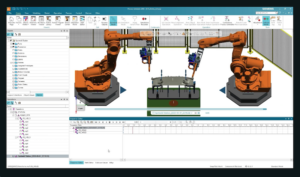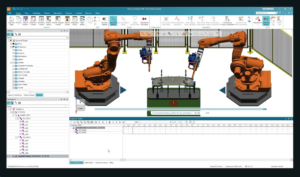
The annual Drug Information Association (DIA) conference, held in March 2025, spotlighted transformative trends reshaping the pharmaceutical industry. Key discussions focused on small clinical analytics (SCA), artificial intelligence (AI), and Fonto One, a software designed to enhance document collaboration. These innovations are poised to significantly improve drug development processes, streamline clinical trials, and bolster compliance with regulatory standards.
The Rise of Small Clinical Analytics (SCA)
Small clinical analytics refers to the focused, data-driven methods used to analyze clinical data on a more manageable scale. This approach allows pharmaceutical companies to derive insights from specific datasets swiftly, enhancing their ability to make informed decisions in research and development.
The conference showcased several case studies demonstrating how SCA has revolutionized trial design. By leveraging smaller data subsets, researchers can better identify patient subgroups, tailoring treatments to meet individual needs. This precision accelerates the drug development process and optimizes resource allocation, ultimately reducing time to market.
Another significant discussion at DIA 2025 revolved around the real-time monitoring of clinical trials facilitated by SCA. Sponsors can dynamically adjust trial protocols based on emerging data, ensuring trials maintain both efficiency and ethical standards. This capability to pivot quickly in response to real-time insights can dramatically decrease timelines and costs associated with bringing new products to the market.
Harnessing the Power of Artificial Intelligence (AI)
Artificial intelligence continues to gain traction as a transformative force in the pharmaceutical sector. The conference illustrated AI’s growing integration into various phases of drug development, including drug discovery, patient recruitment, and regulatory compliance processes.
Notably, a presentation highlighted an AI platform that predicts molecular interactions, significantly speeding up the identification of potential candidates for new therapies. Machine learning algorithms analyze vast datasets, allowing for a more streamlined drug discovery process.
AI’s impact extends to compliance and pharmacovigilance as well. Tools that automatically track and assess adverse event reports enable quicker responses to safety concerns, enhancing the overall patient experience. Presentations emphasized the importance of collaboration between AI technologies and regulatory bodies to ensure that regulatory frameworks evolve in tandem with these innovations.
Fonto One: Revolutionizing Document Collaboration
Fonto One is a software platform that enhances document management and collaboration among stakeholders in clinical trials. At DIA 2025, its functionality was highlighted as essential for promoting transparency and speed in clinical documentation.
The platform simplifies the approval process for clinical documents by facilitating real-time collaboration among teams. This improvement enhances communication and minimizes delays typically associated with version control and document hand-offs, ultimately expediting the timeline for bringing drugs to market.
Additionally, Fonto One incorporates compliance checkpoints throughout the document lifecycle, ensuring that all submissions adhere to regulatory expectations. This feature not only safeguards the integrity of clinical data but also instills confidence among regulatory agencies.
Looking ahead, the insights and discussions from DIA 2025 underscore a future in which the pharmaceutical industry leverages data intelligently and harnesses the power of AI. The integration of small clinical analytics will lead to quicker, more targeted research approaches. AI will continue to reshape drug development from discovery to compliance, while collaborative platforms like Fonto One will enhance teamwork and ensure adherence to regulatory standards.
For industry stakeholders, these advancements present not only challenges but also significant opportunities to revolutionize patient care on a global scale. The conversations initiated at DIA 2025 are likely to catalyze the next wave of innovation, propelling the pharmaceutical sector towards a more efficient, data-driven future focused on improving patient outcomes.






